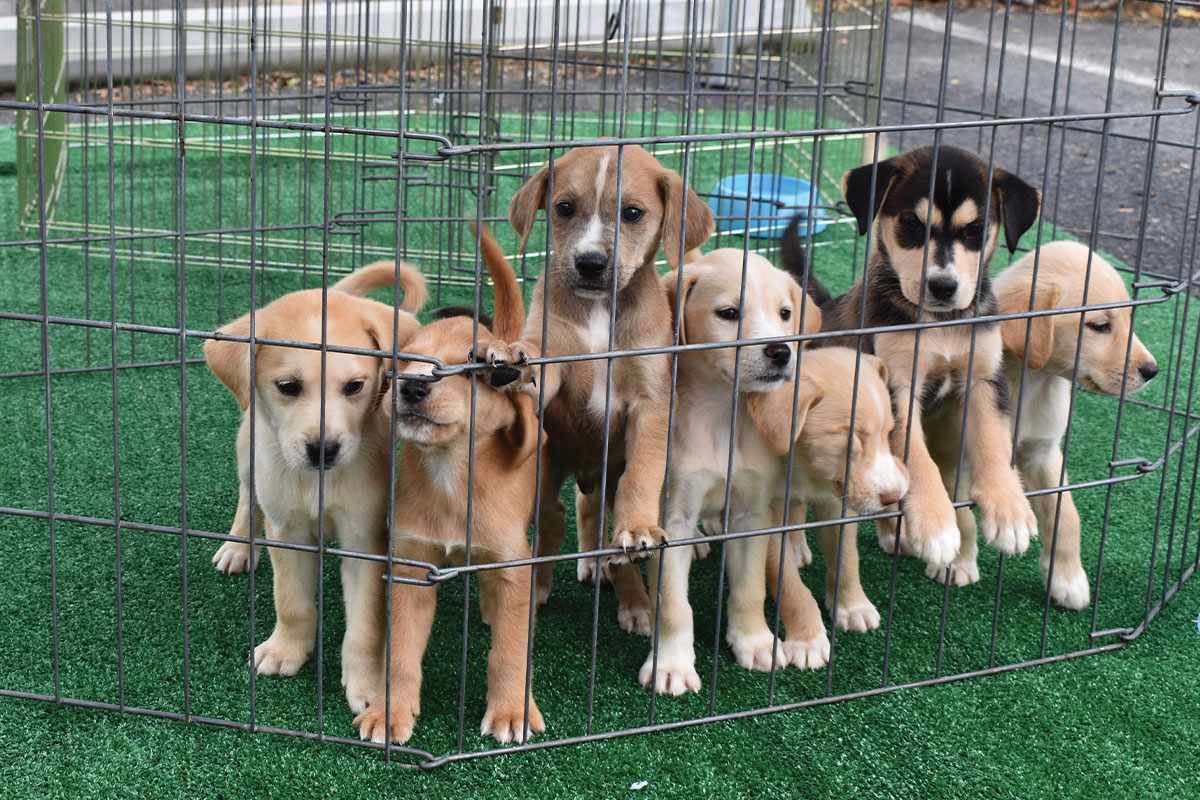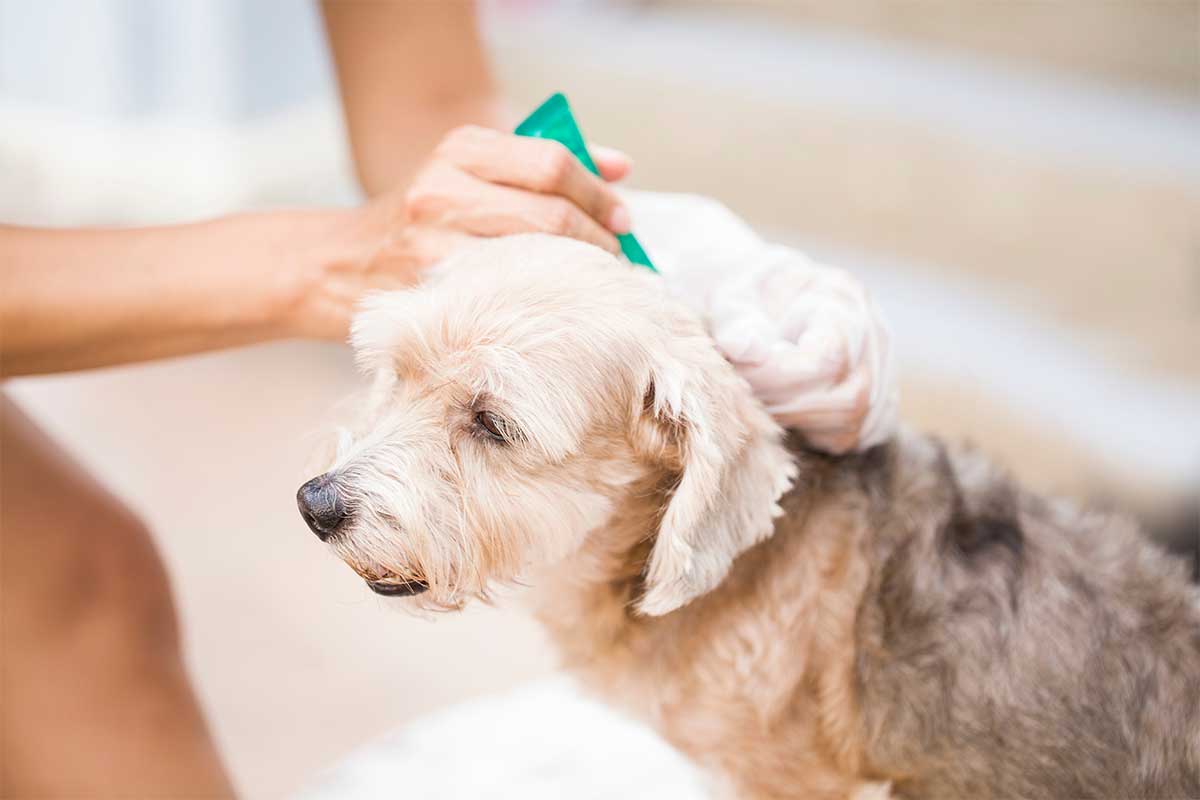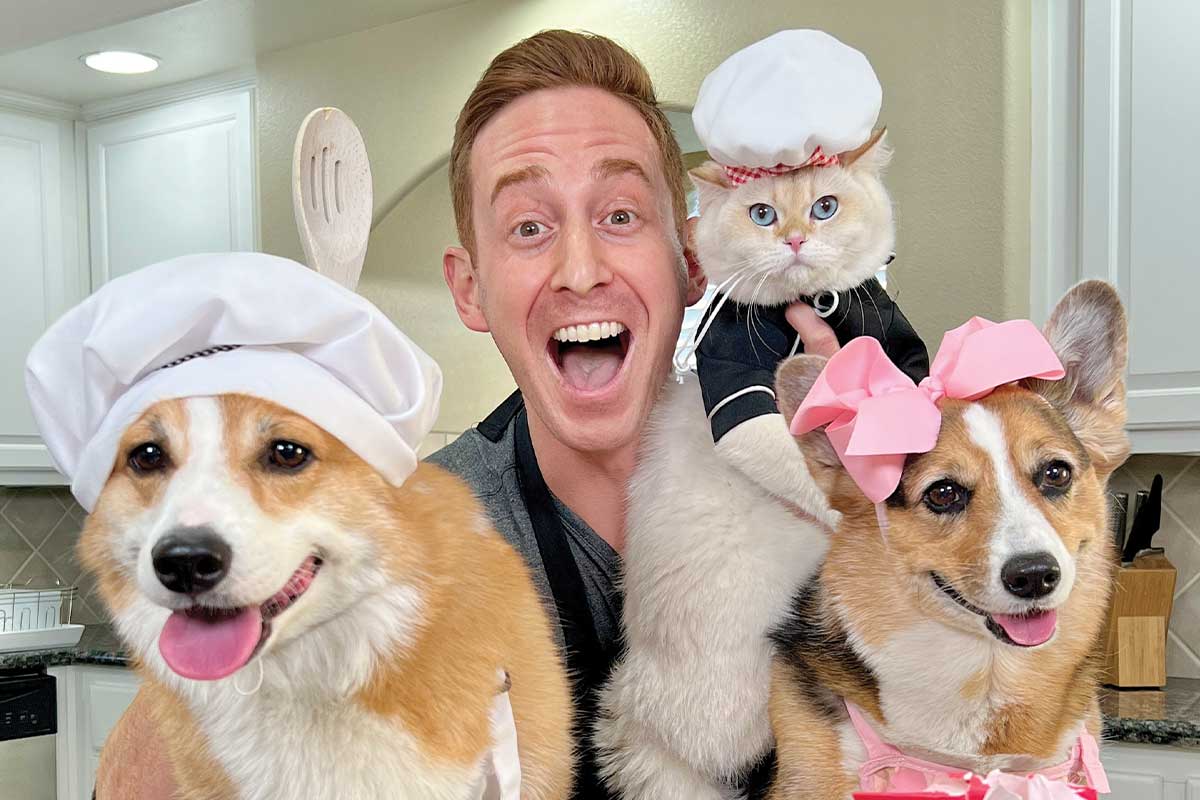Luna moved into her new home in Alexandria in July from her native Louisiana. But she didn’t come for a job or to enjoy the area’s cultural attractions. Luna is a rat terrier who previously lived with a hoarder and at a shelter where animals are euthanized.
Now she lives with Virginia Murphy, who adopted her at an event sponsored by the Lost Dog & Cat Rescue Foundation. “I was looking for a terrier,” says Murphy, who found Luna online.
“She is doing really well,” Murphy says a few weeks after Luna’s adoption. She’s pleased the dog learned basic commands while in rescue care. “We had a few accidents the first week and that was it. She has turned out to be the sweetest little thing. We could not have adopted a better dog.”
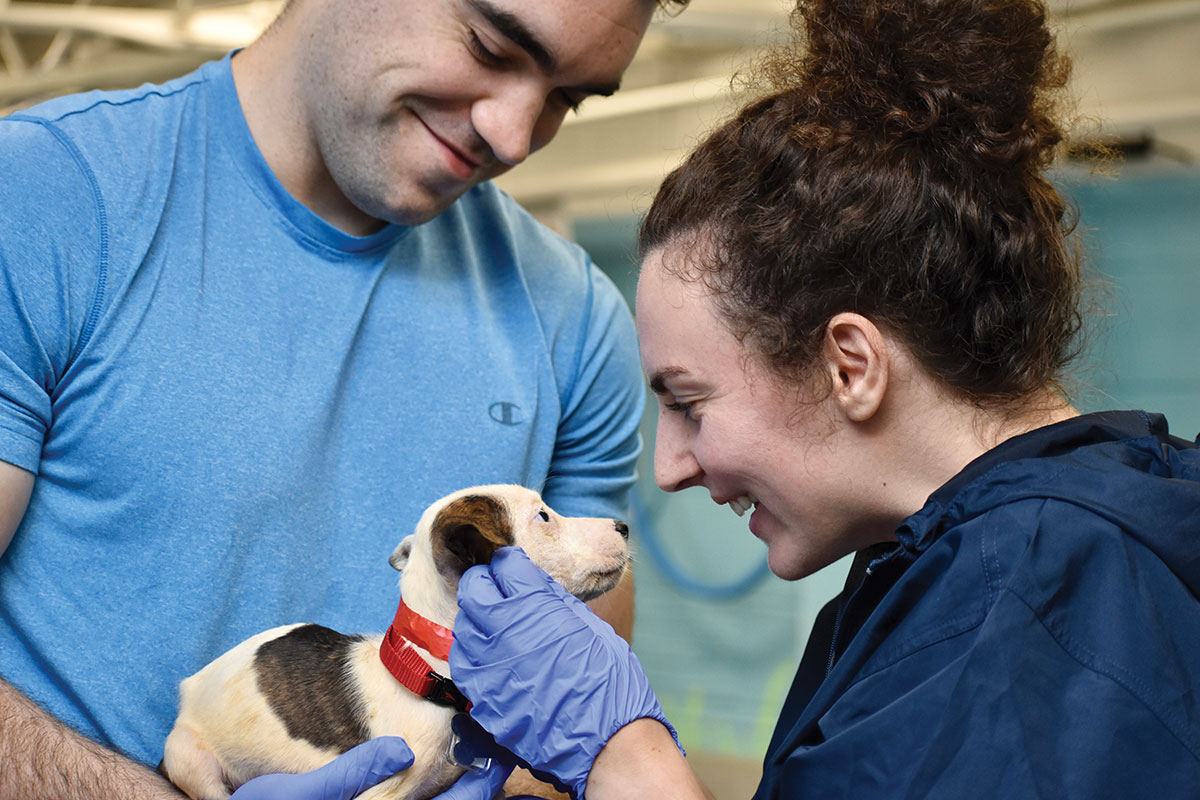
The foundation, which aims to create a “world free of homeless, neglected, or abused pets,” operates a rescue care center that can house up to about 100 dogs and 25 to 30 cats, but “70 [dogs] and 12 [cats] is our comfort level,” says Dawn Wallace, executive director. All told, the foundation cares for about 250 animals, with the bulk fostered by staff and volunteers who provide temporary homes. Wallace describes it as a profession “where you have to let go of [the] ones you love.”
The center operates out of a former kennel behind Eden Center in Seven Corners. The facility, purchased in 2018, has seen some improvements but still needs more. Wallace says the foundation hopes to replace the facility’s blacktop with concrete because it’s rough on the dogs’ paws. Work needs to be done on an outdoor play area. The facility also needs more soundproofing, as dogs are not the quietest creatures.
The residential area includes an infirmary for animals that need to be quarantined, a reception area where donors can leave in-kind contributions (such as toys and dog food), and a living room section with a rug and couch to simulate home conditions.
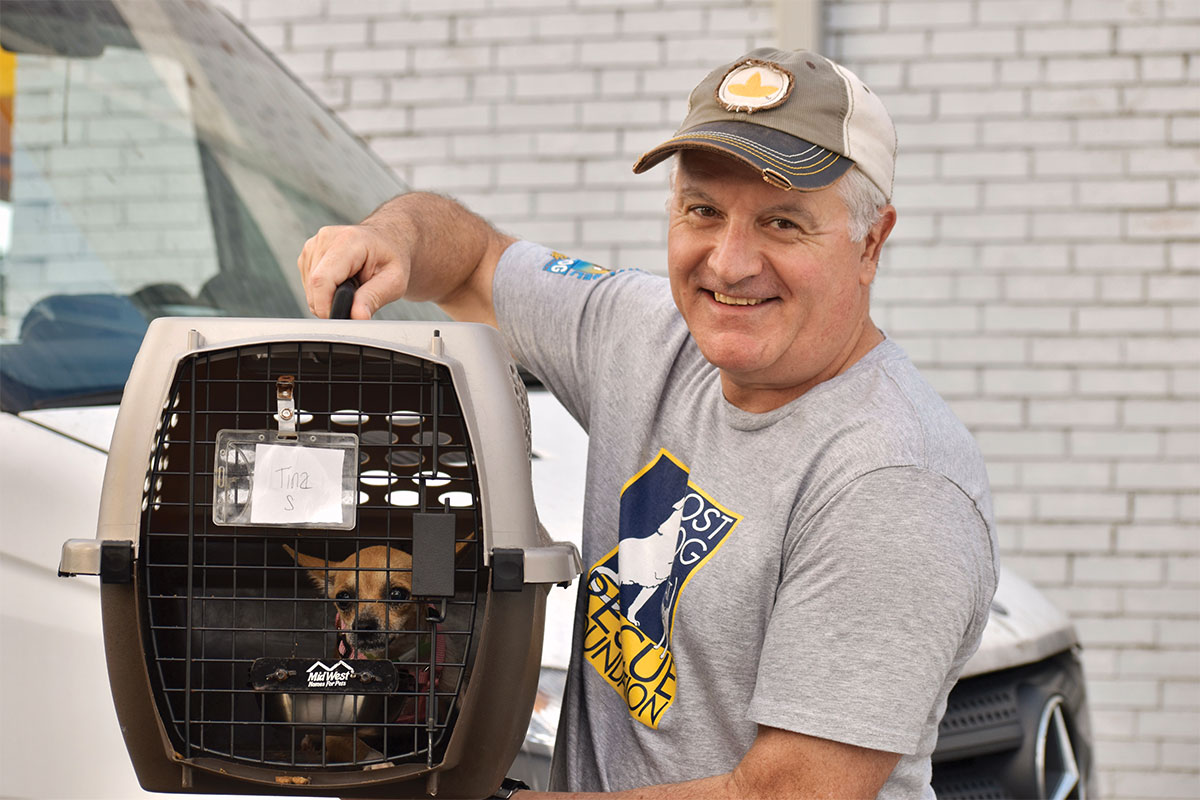
Enlisting Help
The foundation moved to Arlington from its 63-acre Lost Dog & Cat Ranch in Fauquier County to be more efficient. The centralized location cut transport costs and helped the rescue increase its volunteer pool.
Volunteers do everything from fostering pets to walking the dogs to greeting people at the desk. They also garden, work adoption events, and write website profiles of each adoptable pet.
Lost Dog & Cat counts about 800 volunteers in its network, including those who foster the pets. “We are always looking for additional help with walking, cleaning, maintenance, cat room, fosters, etc.,” says Chloe Floyd, media and public relations manager. Volunteer Amy Holla helps foster the dogs. “I did it in college when I could not have my own dog,” she recalls. “I share the care with my mom and brother, so we don’t get too attached” to the pets before they find permanent homes.
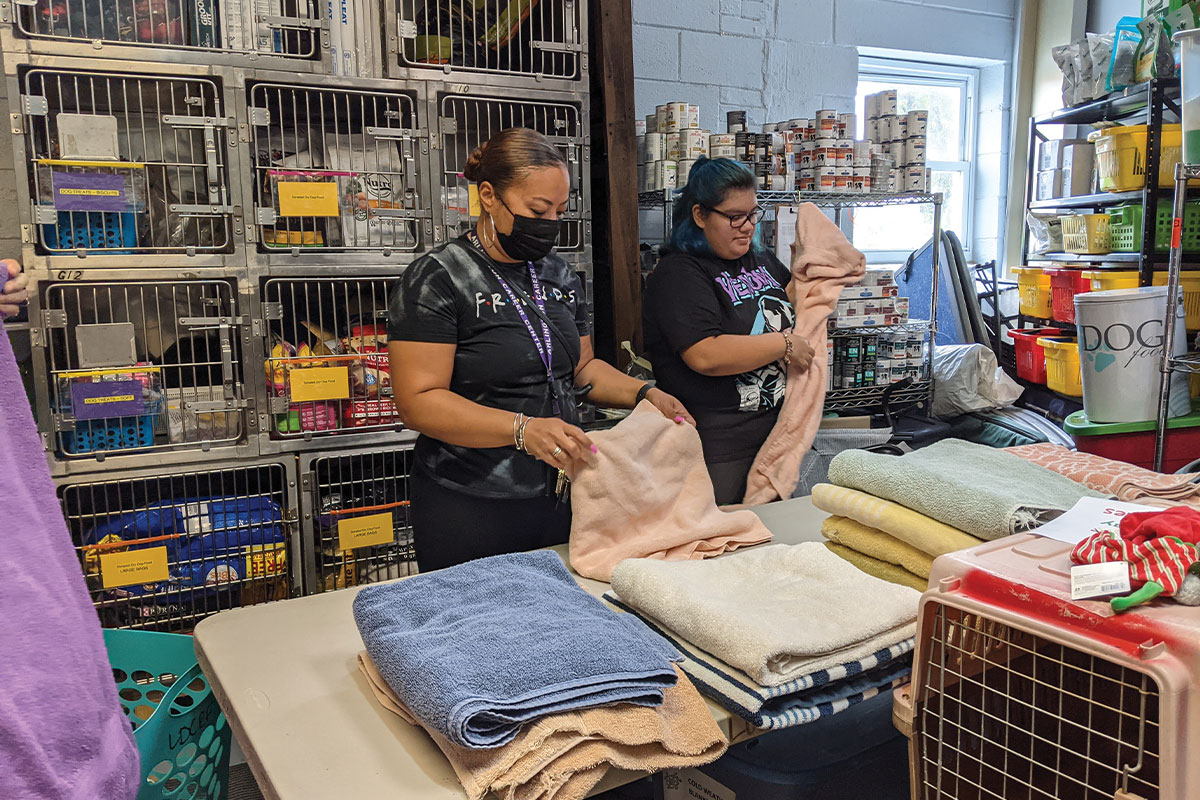
Wallace herself started in 2017 as a volunteer. “I saw a Facebook post saying they were looking for dog walkers,” she says. She became director in 2019. “It was certainly not in my life plan. I was ready to retire and wanted to spend time with dogs.”
The foundation now uses the ranch in Summerduck strictly for its original purpose: to provide a home for pigs, sheep, donkeys, and other barnyard animals with nowhere else to go.
Distinctly Different Adoptions
While Lost Dog’s aim is to prepare dogs and cats as pets and place them in homes, it doesn’t operate as a traditional shelter. Many of the dogs and cats come from shelters in the Caribbean, Georgia, Alabama, and Louisiana that lack adequate room and euthanize potential pets if they don’t find homes in time. It also won’t accept strays or unwanted pets. Wallace says it takes 98 percent of its canines and felines from partner shelters. “If you find a dog on the side of the road, we’ll direct you to another shelter,” she says.
When pets come in from other shelters, Lost Dog checks them to make sure they are in good health and administers required vaccines. The center also makes sure they are suitable for adoption. “How are they on leash? How are they around other dogs? How are they around men? How are they around women?” says Wallace. Then the newcomers get their pictures taken and web profiles written.
Unlike some shelters, you can’t adopt a furry friend on site from the Lost Dog facility. Adoption events typically take place on Saturday afternoons at PetSmart locations in Seven Corners, Fair Lakes, Sterling, and Gaithersburg, Maryland. Lost Dog posts profiles of potential pet soulmates on its website before specific adoption events. An adopter can take a pet home for a two-week trial to ensure it’s the right fit for the family.
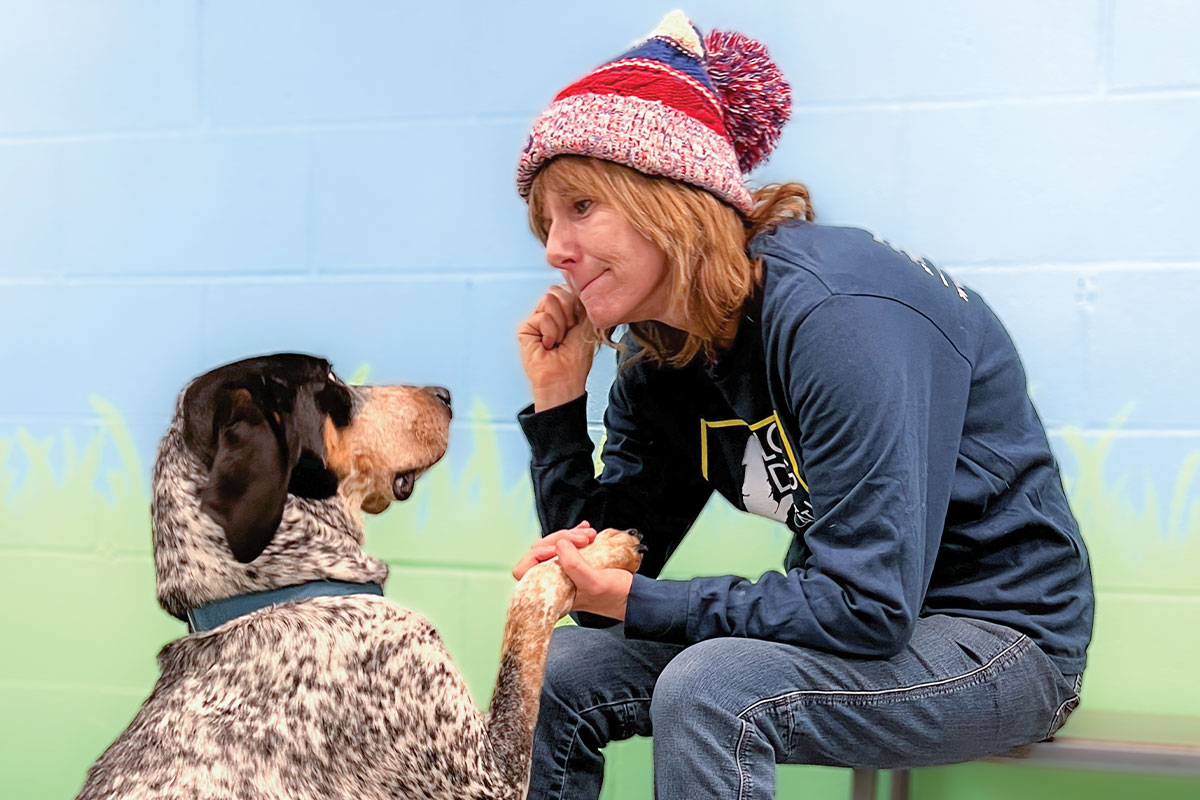
If a dog is not adopted at one event, it’s taken to another event the next week at another store. Larger dogs tend to be most difficult to place. Often, senior citizens looking for companions take the older dogs, Wallace says.
Adoptions increased during the pandemic as people spent more time at home. That shift also “expanded our volunteer base. We had way more fosters,” Wallace says.
Post-pandemic, the level of returns increased, but only this past summer. Shelter co-founder Pam McAlwee blames the returns on a post-pandemic baby boom, explaining that often the rescue dogs didn’t have experience with children, and some of their new families weren’t able to balance that.
McAlwee opened a restaurant in Arlington in 1985, and when she learned that some shelters euthanized potential pets, she gave her restaurant another mission: to save as many as it could. Today, part of the rescue’s budget comes from a share of the proceeds from five Lost Dog Cafés in Northern Virginia and the McAlwee-owned Stray Cat Bar & Grill in Arlington. Currently, she owns the café on Washington Boulevard in Arlington and franchises the others to former employees.
Always prepared to act in times of crisis, the foundation responded to three major demand spikes last year, including taking in animals displaced when the massive Category 5 Hurricane Ian struck Florida; saving 64 of the nearly 4,000 beagles freed with the closure of Envigo, a beagle-breeding facility in Cumberland, Virginia, cited for dozens of animal welfare violations; and rescuing 27 neglected and infected dogs rescued from commercial breeders in Missouri that were transported to Manassas Region Airport.
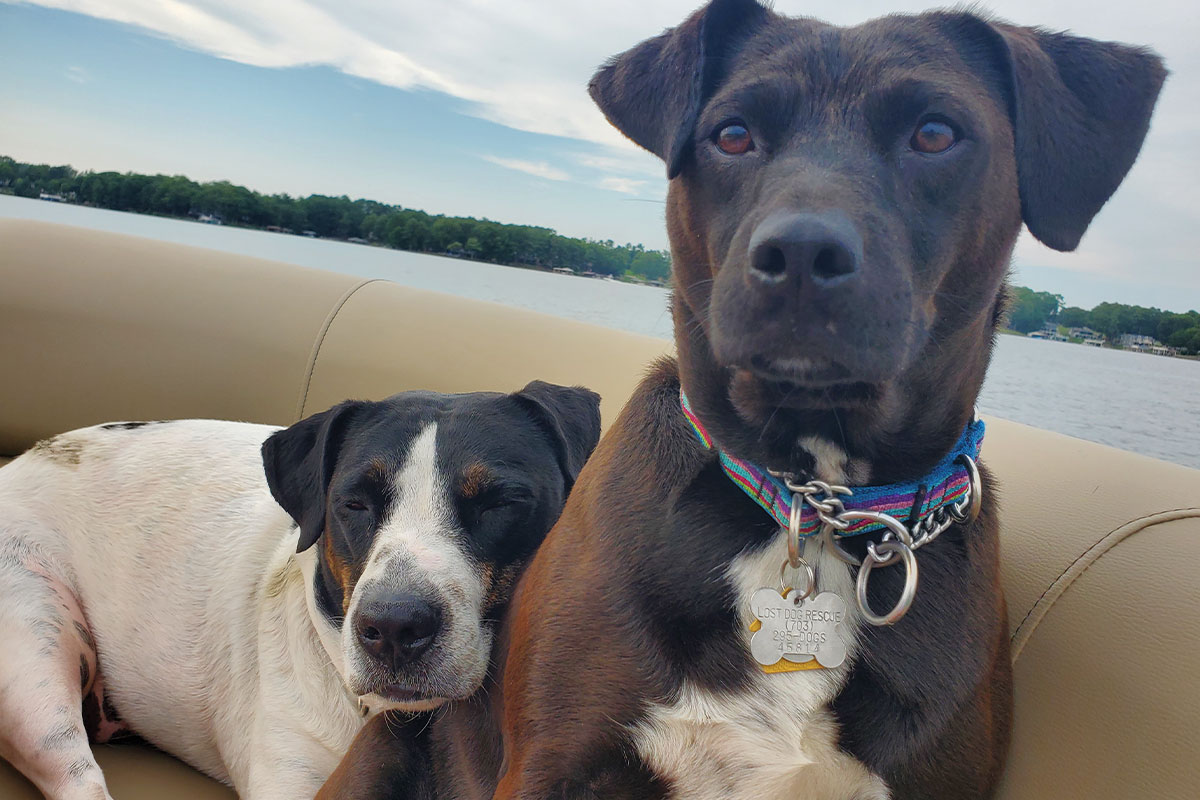
Another clear indication of Lost Dog’s success is the high volume of repeat adopters. There’s even a dedicated Facebook group where adopters connect and share advice with each other.
One repeat adopter, Jenna Shell, moved to Alexandria from Detroit in 2019. During the pandemic, she says, “We were stuck at home. I thought, ‘What else can I do that may help the community but not put myself at risk?’” She decided to foster dogs “a couple days here and there.” Lula, “my polka-dotted pit bull perfect puppy,” initially stayed for a weekend, but when Shell heard Lula was ready for adoption, she told the foundation, “Don’t let her go! Bring her back here.”
A year later, Shell adopted Betty, a mutt from Georgia. She recalls Betty “was in pretty sad shape. She had heartworms [and] just had puppies.” But Betty did more than survive — she thrived in her new environment. And, to Shell’s delight, a precious polka-dotted pit bull became Betty’s new best friend.
Feature image courtesy Lost Dog & Cat Rescue Foundation
This story originally ran in our October issue. For more stories like this, subscribe to Northern Virginia Magazine.

